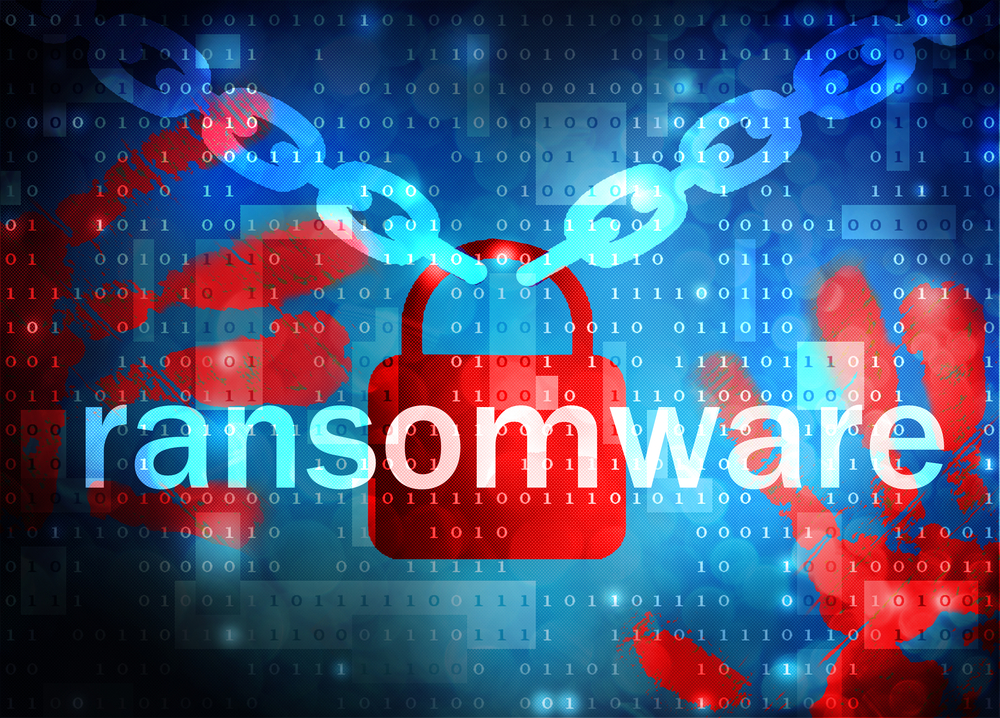Many IT security managers consider their company vulnerable to blackmail
The majority of top management IT security executives surveyed believe cyberwarfare activities put their organization at risk. Half worry that a ransomware attack could wipe out their company. That's according to the "10 in 10" study.

The following are the most important results of the Bitdefender study:
Seven in ten of the top managers surveyed (71%) believe cyber warfare is a threat to their organization. At the same time, just over one-fifth (22%) admit to having no strategy in place to mitigate this risk. Half of all respondents (50%) agree that increasing cyberwarfare activity will hurt the economy in the next 12 months.
Ransomware: A booming business model
43% of IT security professionals reported that they observed an increase in ransomware attacks in the wake of the pandemic. 63% expect a further increase in the next 12 to 18 months. 49% of top executives fear a ransomware attack could wipe out their company in the next 12 to 18 months if they don't increase their security investments. And as many as 59% of them believe their company would make a payment to prevent information from being released.
Create more understanding to achieve investment
Half (51%) of all respondents agree with the statement that there needs to be a dramatic change in the way they communicate about cybersecurity in order to make the necessary investments in this area. Two-fifths (41%) believe that more communication with the broader public and customers is needed in the future so that everyone, both inside and outside the organization, better understands the risks. 38% call for better communication with management so they understand the risks. 39% want less technical language so that their entire organization understands the risks and learns how to protect itself.
More diversity to make companies more robust
More than a quarter (28%) of top executives surveyed predict it will bankrupt companies if the current shortage of IT security professionals continues for another five years. 52% of all respondents think the lack of diversity in cybersecurity is a concern. 40% of top executives call for the cybersecurity industry to reflect the society around it. In addition, 76% believe that more diverse skills are needed among those working in IT security. 39% of all respondents say neurodiversity will strengthen cybersecurity, meaning greater inclusion of people on the autism spectrum or with dyslexia, dyspraxia, ADHD and other neurological specialties.
Liviu Arsene, Global Cybersecurity Researcher at Bitdefender, concludes, "2020 was a year of change - for the security industry as well. The security landscape is rapidly evolving and trying to adapt to the new normal, from distributed workforces to new threats. To succeed in this new security landscape, we need to start thinking about how to close the skills gap in other ways - we need to focus on diversity, especially neurodiversity."
No contingency plan for Corona
Back in June, Bitdefender published data on the impact of the Corona crisis on IT security in a partial evaluation. Among the findings here was that an overwhelming majority believe that the pandemic will permanently change the way their companies operate. Half slipped into the pandemic situation without a suitable contingency plan.
The full "10 in 10" study report is available at. https://www.bitdefender.com/files/News/CaseStudies/study/368/Bitdefender-10-in-10-Report.pdf
The report, "The Indelible Impact of Covid-19 on Cybersecurity," based on the same surveys, is available at. https://www.bitdefender.com/files/News/CaseStudies/study/348/Bitdefender-10-IN-10-The-Indelible-Impact-of-COVID-19-on-Cybersecurity.pdf
About the "10 in 10" study
For the "10 in 10" study, 6,724 cybersecurity and IT employees in the UK, US, Australia, New Zealand, Germany, France, Italy, Spain, Denmark and Sweden were surveyed by market research firm Sapio Research in May this year. The report represents a broad cross-section of organizations and industries, from young SMEs with 100 employees or more to publicly traded companies with more than 10,000 employees in a variety of industries, including finance, government and energy. All participants in the study use or have decision-making authority over data security solutions and software security products. Twenty-three percent of participants are members of top management, such as CISOs, CSOs and CIOs.









